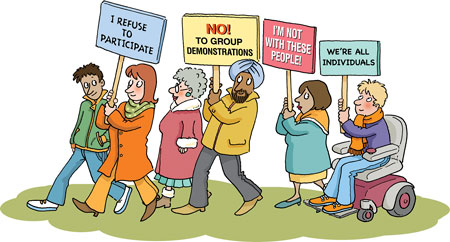What is participation?

To explore how social science helps to make a difference to social life – how it helps to enact social worlds – this course focuses on participation. Participation refers to all the ways that people engage in social worlds with others including taking part in social life, sharing in a common culture and being involved in civic activities. Social scientific investigations of all sorts of topics – such as poverty, social exclusion, political representation and everyday life – often revolve around the value ascribed to participation by experts and ordinary people alike.
Participation as a topic attracts a great deal of attention from social scientists. The political scientist Patrick Chabal (2009) uses the word ‘partaking’ to capture the dual sense in which participation is important in social science:
- the idea of taking part in activities with others
- the idea of making use of shared resources.
You will see that both of these dimensions of participation are important in social scientific accounts of participation.
Some participation involves deliberate decisions to act together with others, such as when people march in a demonstration, vote in an election or join a group formed to pursue a shared purpose, such as protecting the environment.
Other activities, such as using public transport or visiting a museum, might at first seem less obviously social but they are still forms of participation. Many people engage in them together, but even when these activities are done individually we all share in their overall costs and benefits, for example by making contributions to keep museums open or paying taxes to subsidise public transport systems.
